Smart Edit: An Overview
Terry Odell
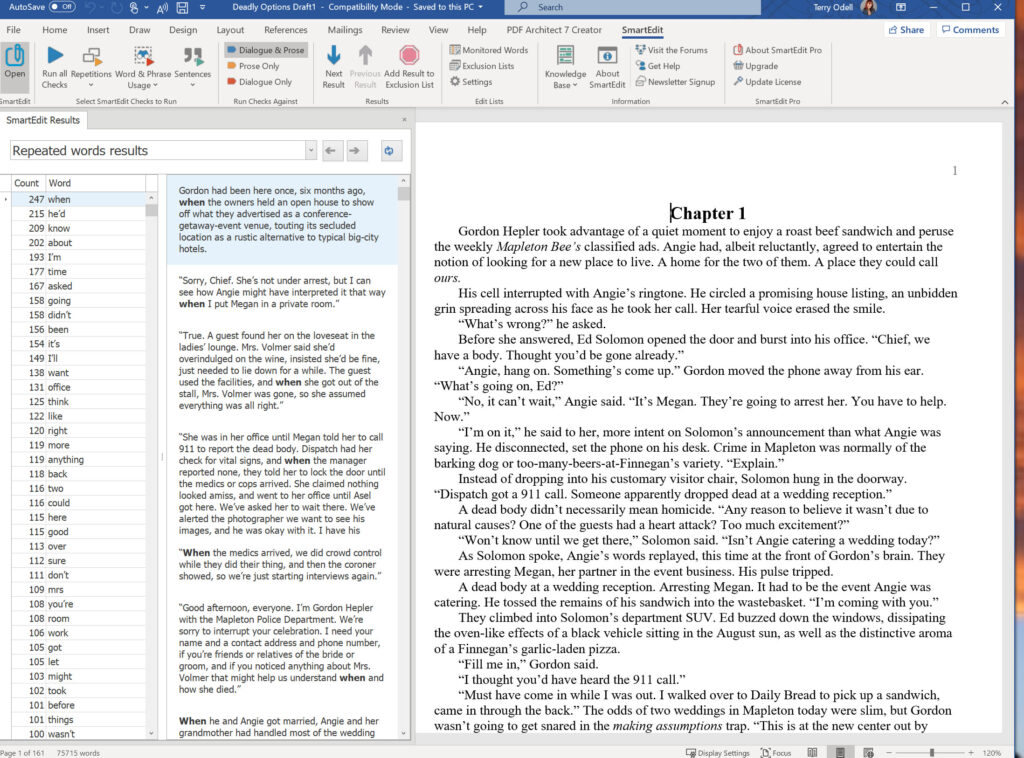 Last time, I mentioned I used a program/app called Smart Edit to fine tune my manuscripts. I said I’d go into more detail if there was interest, and frankly, I’m in editing mode on the new book, and don’t have the brain cells to spare to come up with a different topic.
Last time, I mentioned I used a program/app called Smart Edit to fine tune my manuscripts. I said I’d go into more detail if there was interest, and frankly, I’m in editing mode on the new book, and don’t have the brain cells to spare to come up with a different topic.
**Note. I am simply sharing my opinions and how I use the program. I get zilch from the company for my posts.
Those of us who don’t have an unlimited budget rely on the “tricks” and for me, Smart Edit helps tighten the manuscript, and finds things my eyes have missed.
I have the ‘inside Word’ add on, so I can work right in the manuscript, but there’s also a copy-and-paste version. One thing I like about the ‘inside Word’ version is everything is previewed in context, so if it’s fine as is, you can skip to the next. If you want to make changes, you click on that result and it’ll take you right to that passage in the manuscript.
The program (sorry, but to me, an ‘app’ is something like Angry Birds, so that’s the term I’m going to use) runs checks on a variety of potential pitfalls. The obvious is “repeated words” which, despite my having my own checklist of crutch words, always finds new ones. There’s also “repeated phrases.”
Beyond that are searches for misused words, redundancies, risqué words, clichés, adverbs, proper nouns (good for finding those places where you’ve written “Helper” instead of “Hepler” for your protagonist), and looking back at Elaine’s post last week, speaker tags.
One thing to understand. SmartEdit doesn’t edit. It points out things you, as the author, are in control of, and every decision is yours to make. It’s not perfect, but I’ve found it’s a good starting point.
Here are some examples (You should be able to enlarge them by clicking.)
In addition to overused words and phrases, here are some of the other searches it will perform
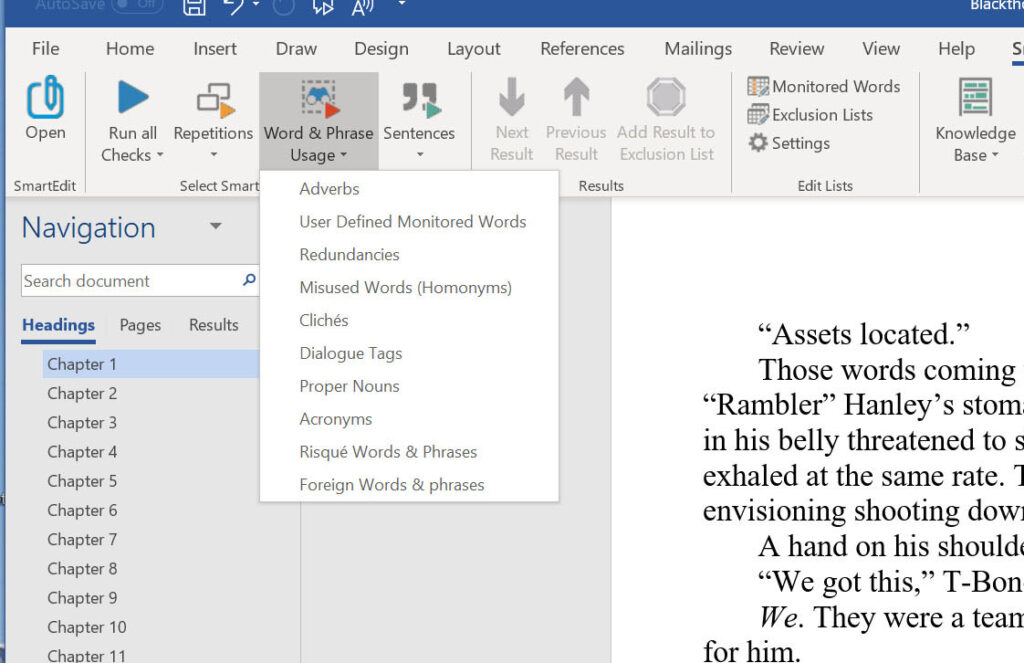 And some of my results:
And some of my results:
This was a search for adverbs.
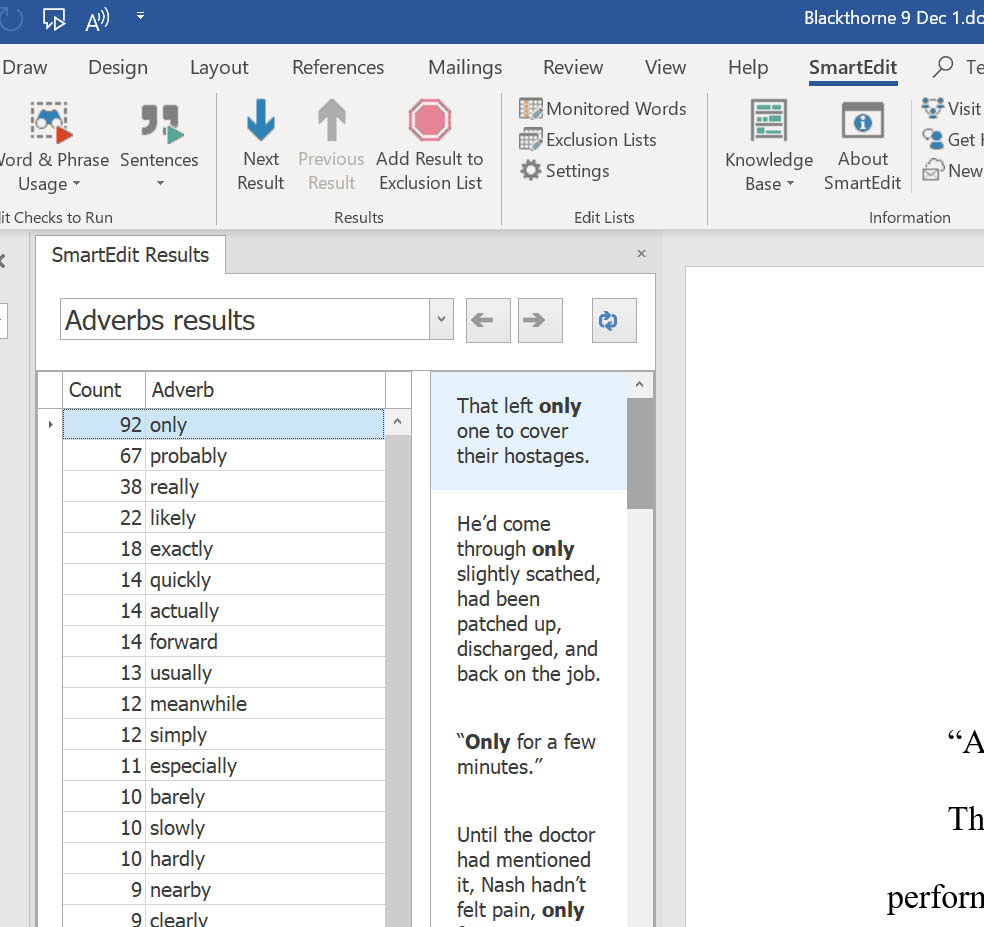
And for cliches
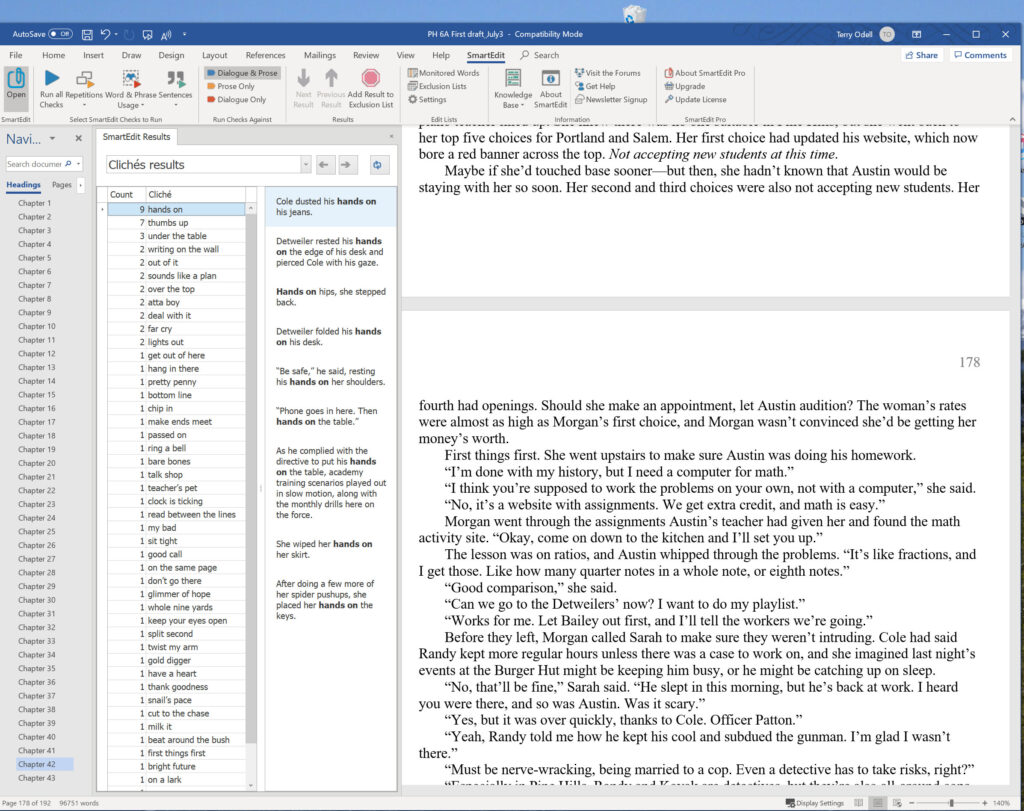 Another search that can be helpful is dialogue tags, although this is one where the program isn’t as accurate. It’s flagged words as tags that aren’t written as such. Again, the user is responsible for checking. (This was taken from a 3500 word short story run, which is why the overall counts are low. It does go back to Elaine’s post about using said, which is my go-to dialogue tag.)
Another search that can be helpful is dialogue tags, although this is one where the program isn’t as accurate. It’s flagged words as tags that aren’t written as such. Again, the user is responsible for checking. (This was taken from a 3500 word short story run, which is why the overall counts are low. It does go back to Elaine’s post about using said, which is my go-to dialogue tag.)
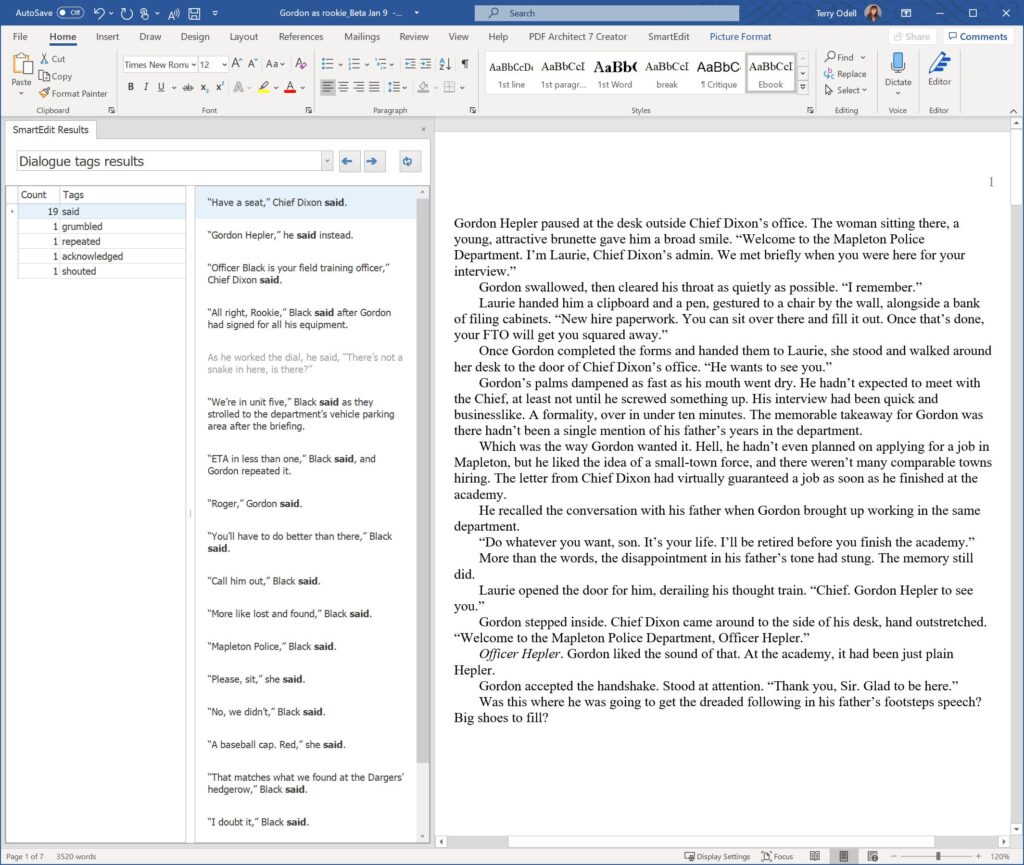 The program doesn’t correct your grammar. I know people use other programs for that, although I don’t usually have trouble with grammar, so I’m more interested in streamlining and clarity. I beta tested a grammar program once, and it didn’t get anything right.
The program doesn’t correct your grammar. I know people use other programs for that, although I don’t usually have trouble with grammar, so I’m more interested in streamlining and clarity. I beta tested a grammar program once, and it didn’t get anything right.
I’m paying an editor, you say. Why can’t I let her find and fix these? I could, but most editors charge by the hour. I know of one who charges by the word. If I can spend those hours taking care of a lot of these excesses, it saves time—and what can be significant money.There are other editing programs out there, but I’ve found SmartEdit works best for me. While I have a list of my words to destroy, somehow, new once crop up in each manuscript, and having this program find the sneaky ones I wouldn’t have thought to look for helps.
Do you use any automated programs for editing? How have they worked for you?

Terry Odell is an award-winning author of Mystery and Romantic Suspense, although she prefers to think of them all as “Mysteries with Relationships.” Follow her on Facebook and Twitter.
 Watch for her upcoming release, Deadly Options, due out in late February.
Watch for her upcoming release, Deadly Options, due out in late February.

